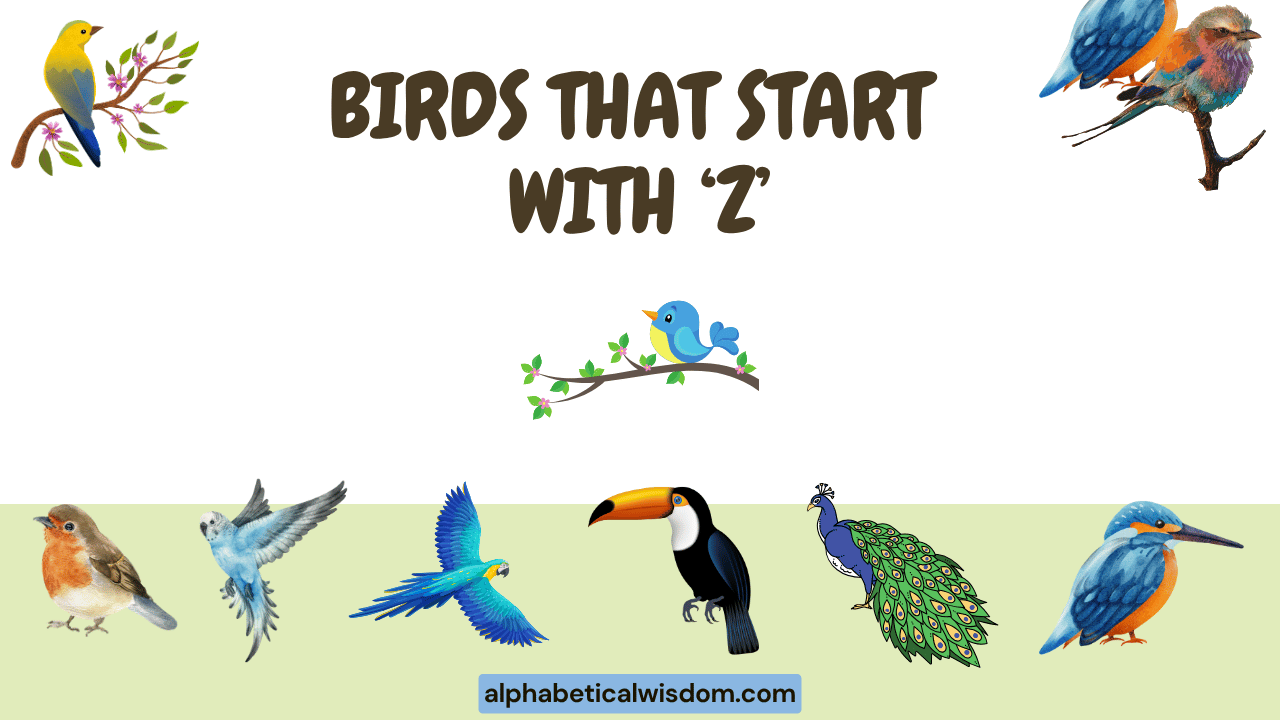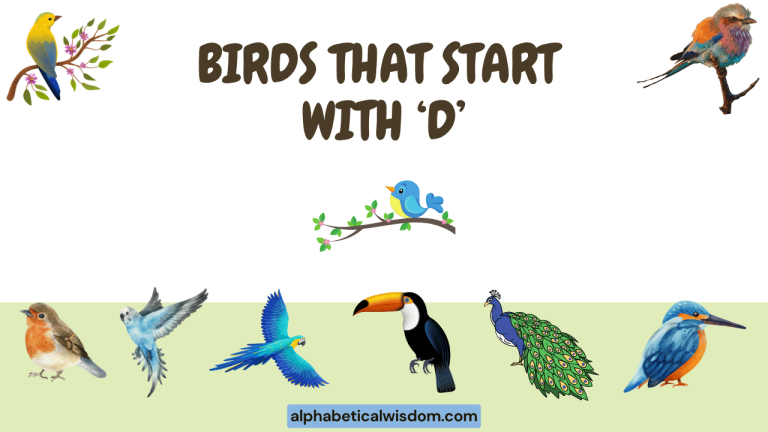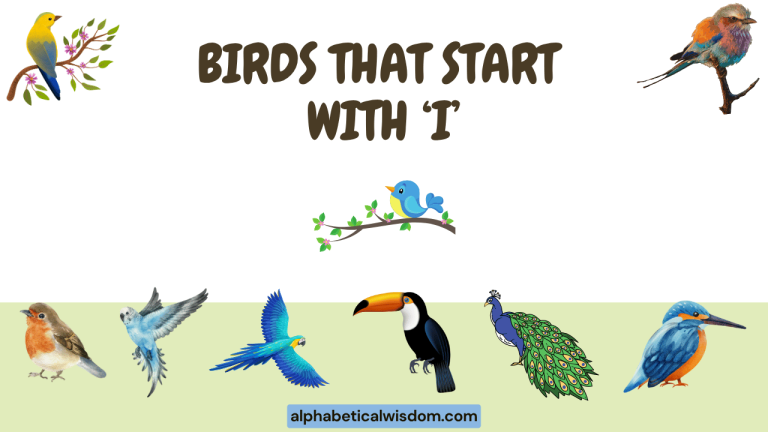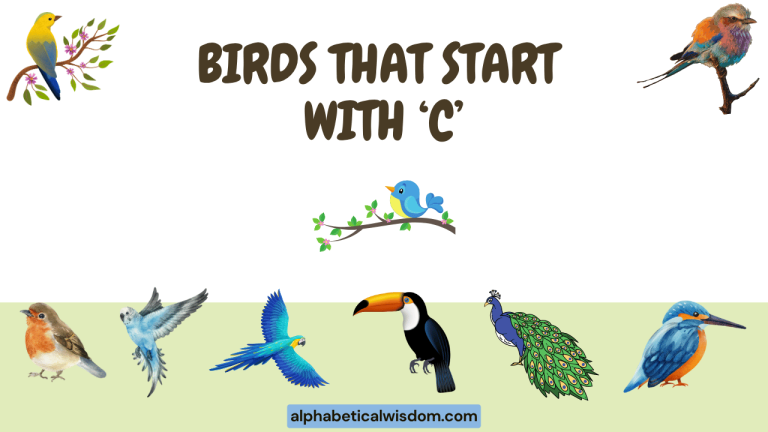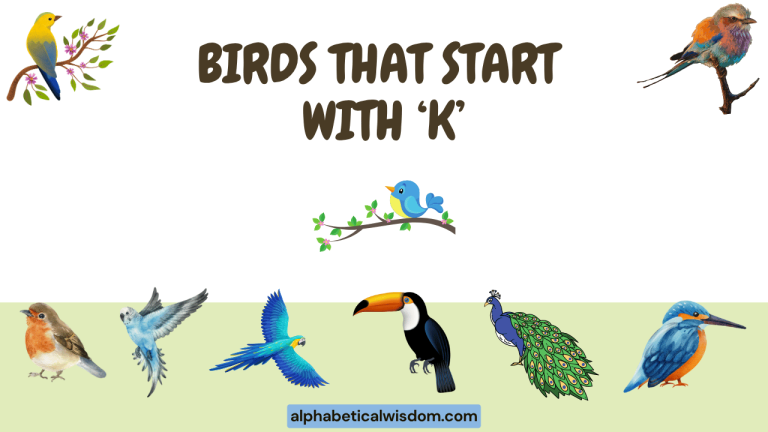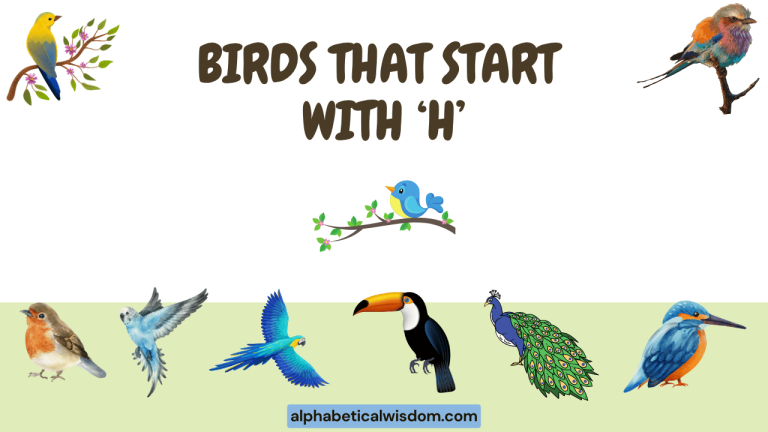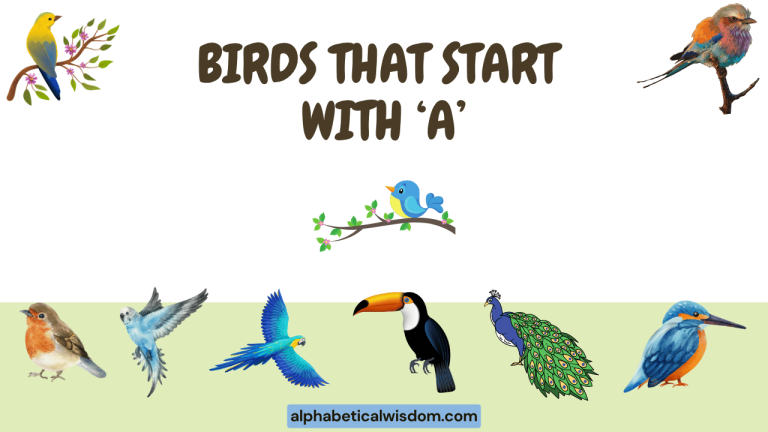Birds That Start With Z: A Grammatical Exploration
Exploring the English language through the lens of specific categories like “birds that start with Z” offers a unique and engaging approach to grammar. This method not only expands vocabulary but also reinforces grammatical concepts such as noun usage, pluralization, and sentence construction.
Understanding how these words function within sentences, their proper usage, and common errors associated with them enhances overall language proficiency. This article is designed for English language learners, educators, and anyone interested in a novel approach to grammar.
By focusing on a niche topic, we can delve into the intricacies of grammar in a memorable and practical way. This approach is particularly beneficial for visual learners and those who appreciate context-based learning.
Whether you’re preparing for an English proficiency exam, teaching English as a second language, or simply looking to improve your grammar skills, this guide provides valuable insights and practical exercises to help you master the English language through the avian world.
Table of Contents
- Introduction
- Definition: Birds That Start With Z
- Structural Breakdown: Noun Forms
- Types and Categories of Noun Usage
- Examples of Birds That Start With Z in Sentences
- Usage Rules: Grammatical Considerations
- Common Mistakes and Corrections
- Practice Exercises
- Advanced Topics
- Frequently Asked Questions (FAQ)
- Conclusion
Definition: Birds That Start With Z
In the context of English grammar, “birds that start with Z” primarily functions as a noun phrase. This phrase refers to a specific subset of birds whose common English names begin with the letter “Z.” While the list of birds fitting this criterion is relatively small, it provides a focused subject for exploring various grammatical concepts. The most commonly cited example is the Zebra Finch.
The phrase can be used in various grammatical contexts, including as a subject, object, or complement within a sentence. Understanding its role and how it interacts with other parts of speech is essential for constructing grammatically correct and meaningful sentences.
The singular and plural forms of these bird names also play a crucial role in subject-verb agreement and sentence structure.
Structural Breakdown: Noun Forms
The structural breakdown of “birds that start with Z” involves understanding the noun forms and their functions. The primary noun is the specific name of the bird (e.g., Zebra Finch), which can be either singular or plural.
The phrase “birds that start with Z” itself acts as a broader category, encompassing all birds whose names meet this criterion. Here’s how to break it down:
- Singular Form: Refers to one bird (e.g., “A Zebra Finch”).
- Plural Form: Refers to more than one bird (e.g., “Zebra Finches”).
- Noun Phrase: “Birds that start with Z” acts as a noun phrase, functioning as a single unit within a sentence.
The correct usage of singular and plural forms is crucial for maintaining grammatical accuracy. For example, using a singular verb with a plural noun or vice versa can lead to errors in sentence construction.
Additionally, understanding how these nouns interact with articles (a, an, the) is important for clear and effective communication. Consider the sentence, “The Zebra Finch is a popular pet.” Here, “Zebra Finch” is the subject, and the article “The” specifies a particular Zebra Finch or Zebra Finches in general.
Types and Categories of Noun Usage
When discussing “birds that start with Z,” it’s important to understand the different types and categories of noun usage. These categories help clarify how the noun functions within a sentence and its relationship to other words.
Below are some key classifications:
Common Nouns
A common noun refers to a general type of bird rather than a specific individual. For example, “finch” is a common noun.
When referring to “Zebra Finch” as a species, it can function as a common noun, especially when pluralized (e.g., “Zebra Finches are often kept as pets”).
Proper Nouns
A proper noun refers to a specific individual or entity and is typically capitalized. While “Zebra Finch” is a species name, it doesn’t typically function as a proper noun unless referring to a specific, named individual bird (which is rare).
However, if you were to name a specific Zebra Finch, that name would be a proper noun.
Countable Nouns
Countable nouns can be counted and have both singular and plural forms. “Zebra Finch” is a countable noun because you can have one Zebra Finch, two Zebra Finches, etc.
This is important for determining the correct verb conjugation and article usage.
Uncountable Nouns
Uncountable nouns cannot be counted and typically do not have a plural form. Examples include “water,” “air,” and “information.” Birds, including those that start with Z, are not uncountable nouns.
Collective Nouns
A collective noun refers to a group of individuals considered as a single unit. Examples include “flock,” “group,” and “colony.” You might say “a flock of Zebra Finches” to refer to a group of these birds.
In this case, “flock” is the collective noun.
Examples of Birds That Start With Z in Sentences
To illustrate how “birds that start with Z” function in sentences, let’s look at various examples categorized by sentence structure. These examples demonstrate the different roles these nouns can play and how they interact with other parts of speech.
Simple Sentences
A simple sentence consists of one independent clause. Here are some examples using “Zebra Finch”:
The following table provides 30 examples of simple sentences using “Zebra Finch” as the subject or object.
| # | Simple Sentence |
|---|---|
| 1 | The Zebra Finch chirped loudly. |
| 2 | A Zebra Finch landed on the feeder. |
| 3 | I saw a Zebra Finch today. |
| 4 | The Zebra Finch is small. |
| 5 | My pet is a Zebra Finch. |
| 6 | The Zebra Finch enjoys seeds. |
| 7 | A Zebra Finch flew away. |
| 8 | That is a Zebra Finch. |
| 9 | The Zebra Finch is beautiful. |
| 10 | A colourful Zebra Finch perched on the branch. |
| 11 | The Zebra Finch needs water. |
| 12 | A Zebra Finch built a nest. |
| 13 | He owns a Zebra Finch. |
| 14 | The Zebra Finch sings well. |
| 15 | A Zebra Finch hopped around. |
| 16 | She likes the Zebra Finch. |
| 17 | The Zebra Finch eats millet. |
| 18 | A Zebra Finch appeared suddenly. |
| 19 | The Zebra Finch is active. |
| 20 | A Zebra Finch pecked at the food. |
| 21 | The Zebra Finch preened its feathers. |
| 22 | A Zebra Finch rested in the sun. |
| 23 | The Zebra Finch explored its cage. |
| 24 | A Zebra Finch chirped merrily. |
| 25 | The Zebra Finch flitted about. |
| 26 | A Zebra Finch requires attention. |
| 27 | The Zebra Finch breeds easily. |
| 28 | A Zebra Finch is a social bird. |
| 29 | The Zebra Finch thrives in captivity. |
| 30 | A Zebra Finch needs a companion. |
Compound Sentences
A compound sentence consists of two or more independent clauses joined by a coordinating conjunction (e.g., and, but, or, so, yet) or a semicolon. Here are some examples:
The following table provides 25 examples of compound sentences using “Zebra Finch” in at least one of the independent clauses.
| # | Compound Sentence |
|---|---|
| 1 | The Zebra Finch chirped, and the canary responded. |
| 2 | I saw a Zebra Finch, but it quickly flew away. |
| 3 | The Zebra Finch is small, yet it has a big personality. |
| 4 | We bought a Zebra Finch, so we needed a cage. |
| 5 | The Zebra Finch enjoys seeds, and it also likes greens. |
| 6 | A Zebra Finch landed on the feeder, and it started eating. |
| 7 | That is a Zebra Finch, and it’s very colourful. |
| 8 | The Zebra Finch is beautiful, but it’s also delicate. |
| 9 | A Zebra Finch needs water, so I filled the bowl. |
| 10 | The Zebra Finch sings well, and it’s fun to listen to. |
| 11 | The Zebra Finch hopped around, and the children laughed. |
| 12 | She likes the Zebra Finch, but her cat does not. |
| 13 | The Zebra Finch eats millet, and it seems happy. |
| 14 | A Zebra Finch appeared suddenly, and everyone was surprised. |
| 15 | The Zebra Finch is active, so it needs a large cage. |
| 16 | A Zebra Finch pecked at the food, and then it drank some water. |
| 17 | The Zebra Finch preened its feathers, and it looked content. |
| 18 | A Zebra Finch rested in the sun, and it seemed relaxed. |
| 19 | The Zebra Finch explored its cage, and it found a new toy. |
| 20 | A Zebra Finch chirped merrily, and the morning felt brighter. |
| 21 | The Zebra Finch flitted about, and it entertained us for hours. |
| 22 | A Zebra Finch requires attention, so we spend time with it daily. |
| 23 | The Zebra Finch breeds easily, and many people keep them. |
| 24 | A Zebra Finch is a social bird, so it needs a companion. |
| 25 | The Zebra Finch thrives in captivity, and it brings joy to its owners. |
Complex Sentences
A complex sentence consists of one independent clause and one or more dependent clauses. Here are some examples:
The following table provides 20 examples of complex sentences using “Zebra Finch” in the independent or dependent clause.
| # | Complex Sentence |
|---|---|
| 1 | Because the Zebra Finch chirped, I knew it was morning. |
| 2 | If you see a Zebra Finch, you should take a picture. |
| 3 | The Zebra Finch, which is small, is a popular pet. |
| 4 | Although the Zebra Finch is delicate, it’s easy to care for. |
| 5 | I bought a Zebra Finch because it was beautiful. |
| 6 | After a Zebra Finch landed on the feeder, it began to eat. |
| 7 | That is a Zebra Finch that I saw yesterday. |
| 8 | The Zebra Finch is beautiful even though it’s small. |
| 9 | Since a Zebra Finch needs water, I filled its bowl. |
| 10 | The Zebra Finch sings well when it’s happy. |
| 11 | While the Zebra Finch hopped around, the children watched. |
| 12 | She likes the Zebra Finch, even though it’s noisy. |
| 13 | The Zebra Finch eats millet because it loves it. |
| 14 | When a Zebra Finch appeared suddenly, we were surprised. |
| 15 | The Zebra Finch is active, so it needs a cage that is large. |
| 16 | After a Zebra Finch pecked at the food, it drank some water. |
| 17 | The Zebra Finch preened its feathers until they were perfect. |
| 18 | As a Zebra Finch rested in the sun, it seemed very relaxed. |
| 19 | The Zebra Finch explored its cage, which was newly cleaned. |
| 20 | Because a Zebra Finch chirped merrily, the morning felt brighter. |
Compound-Complex Sentences
A compound-complex sentence has at least two independent clauses and at least one dependent clause. These sentences are the most intricate and allow for detailed expression.
The following table provides 15 examples of compound-complex sentences using “Zebra Finch” in various clauses.
| # | Compound-Complex Sentence |
|---|---|
| 1 | Because the Zebra Finch chirped, I knew it was morning, and I got out of bed. |
| 2 | If you see a Zebra Finch, you should take a picture, but don’t get too close. |
| 3 | The Zebra Finch, which is small, is a popular pet, and it’s easy to care for. |
| 4 | Although the Zebra Finch is delicate, it’s easy to care for, and it brings joy to many. |
| 5 | I bought a Zebra Finch because it was beautiful, and I named it Pip. |
| 6 | After a Zebra Finch landed on the feeder, it began to eat, and other birds joined it. |
| 7 | That is a Zebra Finch that I saw yesterday, and it was even more beautiful today. |
| 8 | The Zebra Finch is beautiful even though it’s small, and many people admire it. |
| 9 | Since a Zebra Finch needs water, I filled its bowl, and it drank immediately. |
| 10 | The Zebra Finch sings well when it’s happy, and that makes me happy too. |
| 11 | While the Zebra Finch hopped around, the children watched, and they giggled with delight. |
| 12 | She likes the Zebra Finch, even though it’s noisy, and she spends hours watching it. |
| 13 | The Zebra Finch eats millet because it loves it, and it always asks for more. |
| 14 | When a Zebra Finch appeared suddenly, we were surprised, and we all gathered around. |
| 15 | The Zebra Finch is active, so it needs a cage that is large, and we make sure it has plenty of toys. |
Questions
Using “birds that start with Z” in questions can also illustrate grammatical concepts. Here are some examples:
The following table provides 10 examples of questions using “Zebra Finch.”
| # | Question |
|---|---|
| 1 | Have you ever seen a Zebra Finch? |
| 2 | Is the Zebra Finch a good pet? |
| 3 | What does a Zebra Finch eat? |
| 4 | Where does the Zebra Finch live? |
| 5 | Why is the Zebra Finch so popular? |
| 6 | How long does a Zebra Finch live? |
| 7 | Can a Zebra Finch talk? |
| 8 | Do Zebra Finches need companions? |
| 9 | Are Zebra Finches easy to breed? |
| 10 | Would you recommend a Zebra Finch as a pet? |
Usage Rules: Grammatical Considerations
Proper usage of “birds that start with Z” requires adherence to several grammatical rules. These rules govern how the noun interacts with verbs, articles, and other parts of speech.
Understanding these rules is essential for constructing grammatically correct sentences.
Subject-Verb Agreement
Subject-verb agreement means that the verb in a sentence must agree in number (singular or plural) with its subject. For example:
- Singular: The Zebra Finch is small.
- Plural: Zebra Finches are small.
Make sure the verb form matches the subject. A common mistake is using a singular verb with a plural subject or vice versa.
For instance, “Zebra Finches is small” is incorrect because “Zebra Finches” is plural, requiring the plural verb “are.”
Article Usage (a, an, the)
Articles are used to specify whether a noun is definite (specific) or indefinite (general). The articles are “a,” “an,” and “the.”
- A/An: Used to refer to a non-specific Zebra Finch (e.g., “A Zebra Finch landed on the feeder.”). “A” is used before consonant sounds, while “an” is used before vowel sounds.
- The: Used to refer to a specific Zebra Finch or Zebra Finches in general (e.g., “The Zebra Finch is a popular pet.” or “The Zebra Finches in my garden are thriving.”).
Incorrect article usage can lead to confusion or grammatical errors. For example, saying “Zebra Finch is a popular pet” without an article is grammatically incorrect.
You need to specify whether you are referring to a specific or general Zebra Finch.
Pluralization Rules
Most nouns are made plural by adding “-s” to the end. However, there can be exceptions.
For “Zebra Finch,” the plural is “Zebra Finches.” Keep in mind that irregular plural forms exist for other nouns (e.g., “child” becomes “children”), but these do not apply to “Zebra Finch.”
Possessive Forms
Possessive forms indicate ownership or association. To form the possessive of a singular noun, add an apostrophe and “-s” (‘s).
For plural nouns ending in “-s,” add only an apostrophe (‘).
- Singular Possessive: The Zebra Finch‘s cage. (The cage belonging to the Zebra Finch)
- Plural Possessive: The Zebra Finches‘ food. (The food belonging to the Zebra Finches)
Common Mistakes and Corrections
Several common mistakes can occur when using “birds that start with Z.” Recognizing these errors and understanding how to correct them is crucial for improving grammatical accuracy.
The following table outlines common mistakes when using “Zebra Finch” in sentences, along with the corrected versions.
| Mistake | Correction | Explanation |
|---|---|---|
| Zebra Finch are small. | Zebra Finches are small. | Subject-verb agreement: Plural subject requires a plural verb. |
| A Zebra Finch are small. | A Zebra Finch is small. | Subject-verb agreement: Singular subject requires a singular verb. |
| Zebra Finch is a nice bird. | The Zebra Finch is a nice bird. | Article usage: Needs an article to specify the noun. |
| I saw Zebra Finch yesterday. | I saw a Zebra Finch yesterday. | Article usage: Needs an article to introduce the noun. |
| The Zebra Finchs are singing. | The Zebra Finches are singing. | Pluralization: Correct plural form is “Finches.” |
| Zebra Finch’s food is gone. | The Zebra Finch’s food is gone. | Article usage: Needs “The” to specify which Zebra Finch. |
| The Zebra Finches food is gone. | The Zebra Finches’ food is gone. | Possessive form: Plural possessive needs an apostrophe after the “s.” |
| He have a Zebra Finch. | He has a Zebra Finch. | Subject-verb agreement: “He” requires “has.” |
| They has Zebra Finches. | They have Zebra Finches. | Subject-verb agreement: “They” requires “have.” |
| Zebra Finch eat seeds. | Zebra Finches eat seeds. | Subject-verb agreement: Plural subject requires a plural verb. |
Practice Exercises
To reinforce your understanding of “birds that start with Z” in grammar, complete the following exercises. These exercises cover various aspects of noun usage, sentence construction, and grammatical rules.
Exercise 1: Fill in the Blanks
Fill in the blanks with the correct form of the word “Zebra Finch” or the appropriate article (a, an, the). Provide the correct answer in the answer key below.
The following table provides 10 fill-in-the-blank questions using “Zebra Finch.”
| # | Question | Answer |
|---|---|---|
| 1 | I saw _______ Zebra Finch in the pet store. | a |
| 2 | _______ Zebra Finch is known for its distinct markings. | The |
| 3 | _______ are popular pets due to their small size. | Zebra Finches |
| 4 | She owns _______ beautiful Zebra Finch. | a |
| 5 | _______ Zebra Finch’s song is quite melodic. | The |
| 6 | We need to buy food for our _______. | Zebra Finches |
| 7 | Is _______ Zebra Finch a good choice for beginners? | a |
| 8 | They released _______ Zebra Finches into the aviary. | the |
| 9 | He is looking for _______ Zebra Finch to complete his pair. | a |
| 10 | _______ Zebra Finches are originally from Australia. | Zebra Finches |
Exercise 2: Sentence Correction
Correct the following sentences that contain grammatical errors related to the use of “Zebra Finch.” Provide the corrected sentence in the answer key below.
The following table provides 10 sentences with errors related to “Zebra Finch.”
| # | Incorrect Sentence | Corrected Sentence |
|---|---|---|
| 1 | Zebra Finch are a popular pet. | Zebra Finches are popular pets. |
| 2 | I saw Zebra Finch at the park. | I saw a Zebra Finch at the park. |
| 3 | The Zebra Finchs is very colourful. | The Zebra Finch is very colourful. |
| 4 | Zebra Finch’s eat seeds and insects. | Zebra Finches eat seeds and insects. |
| 5 | A Zebra Finch need a large cage. | A Zebra Finch needs a large cage. |
| 6 | The Zebra Finches food bowl is empty. | The Zebra Finches’ food bowl is empty. |
| 7 | He have a Zebra Finch as a pet. | He has a Zebra Finch as a pet. |
| 8 | They is watching Zebra Finches. | They are watching Zebra Finches. |
| 9 | Zebra Finch sing beautifully. | Zebra Finches sing beautifully. |
| 10 | She like the Zebra Finch very much. | She likes the Zebra Finch very much. |
Exercise 3: Sentence Building
Create sentences using the given prompts, incorporating “Zebra Finch” in a grammatically correct manner and varying sentence structures (simple, compound, complex). Provide at least 3 sentence variations for each prompt.
The following table provides 3 prompts for sentence-building exercises focused on “Zebra Finch.” Provide at least 3 sentence variations for each prompt in the answer key below.
| # | Prompt | Sentence Variations |
|---|---|---|
| 1 | Describe a Zebra Finch’s appearance. |
|
| 2 | Explain why someone might choose a Zebra Finch as a pet. |
|
| 3 | Describe the habitat of a Zebra Finch. |
|
Advanced Topics
For advanced learners, exploring the figurative and idiomatic uses of bird-related terms can add depth to their understanding of the English language. While “Zebra Finch” itself may not frequently appear in idioms, the concept of birds in general often does.
Figurative Language
Figurative language uses words or expressions with a meaning that is different from the literal interpretation. For example, metaphors and similes can be used to describe characteristics of birds in a non-literal way.
While not directly related to “Zebra Finch,” understanding these concepts enhances overall language proficiency.
Idiomatic Expressions
Idiomatic expressions are phrases or sayings whose meanings cannot be understood from the literal definitions of the words. Examples include “a bird in the hand is worth two in the bush” and “early bird gets the worm.” While there are no common idioms specifically using “Zebra Finch,” understanding idiomatic language is an important aspect of mastering English.
Frequently Asked Questions (FAQ)
Here are some frequently asked questions about using “birds that start with Z” in English grammar, along with detailed answers.
- Is “Zebra Finch” a common noun or a proper noun?Generally, “Zebra Finch” is considered a common noun because it refers to a species of bird rather than a specific, named individual. However, if you were to give a Zebra Finch a name (e.g., “Pip”), that name would be a proper noun.
- How do I pluralize “Zebra Finch”?The plural form of “Zebra Finch” is “Zebra Finches.” Simply add “-es” to the end of the singular form.
- What articles should I use with “Zebra Finch”?Use “a” or “an” when referring to a non-specific Zebra Finch (e.g., “I saw a Zebra Finch.”). Use “the” when referring to a specific Zebra Finch or Zebra Finches in general (e.g., “The Zebra Finch is a popular pet.” or “The Zebra Finches in my garden are thriving.”).
- How do I use “Zebra Finch” in a possessive form?For the singular possessive, use “Zebra Finch’s” (e.g., “The Zebra Finch’s cage
‘”). For the plural possessive, use “Zebra Finches'” (e.g., “The Zebra Finches’ food”).
- Can “Zebra Finch” be used as a collective noun?No, “Zebra Finch” is not a collective noun. However, you can use collective nouns to describe a group of Zebra Finches, such as “a flock of Zebra Finches.”
Conclusion
Understanding the grammatical nuances of “birds that start with Z,” particularly the Zebra Finch, offers valuable insights into English language usage. By exploring noun forms, sentence structures, and common errors, learners can enhance their grammar skills and overall language proficiency.
This focused approach provides a memorable and practical way to master grammatical concepts, making learning both effective and engaging. Whether you’re a student, educator, or language enthusiast, the principles outlined in this article will undoubtedly contribute to your linguistic journey.
